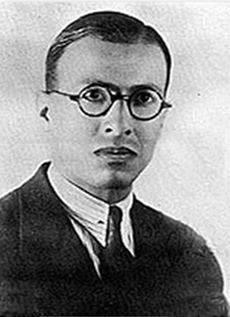Related Research Articles

Ali is a common unisex name.
Abd Allah, also spelled Abdallah, Abdellah, Abdollah, Abdullah, Abdulla, Abdalla and many others, is an Arabic name meaning "Servant of God". It is built from the Arabic words ʻabd (عبد) and Allāh (الله). Although the first letter "a" in Allāh, as the first letter of the article al-, is usually unstressed in Arabic, it is usually stressed in the pronunciation of this name. The variants Abdollah and Abdullah represent the elision of this "a" following the "u" of the Classical Arabic nominative case. Abd Allah is one of many Arabic theophoric names, meaning servant of God. God's Follower is also a meaning of this name.
Mansour ; also spelled Mounsor, Monsur (Bengali), Mansoor, Manser, Mansur, Mansyur (Indonesian) or Mensur (Turkish), is a male Arabic name that means "He who is victorious", from the Arabic root naṣr (نصر), meaning "victory."
Ahmad is an Arabic male given name common in most parts of the Muslim world. Other English spellings of the name include Ahmed and Ahmet. It is also used as a surname.
Mahmud is a transliteration of the male Arabic given name محمود, common in most parts of the Islamic world. It comes from the Arabic triconsonantal root Ḥ-M-D, meaning praise, along with Muhammad.
The Mahdi is the prophesied redeemer of Islam. Mehdi is a variant alternative transliteration.
Jaʽfar, meaning in Arabic "small stream/rivulet/creek", is a masculine name of Arabic origin, common among Muslims especially in Iran.
Yusuf is a male name meaning "God increases". It is the Arabic equivalent of the Hebrew name Yosef and the English name Joseph. It is widely used in many parts of the world by Arabs of all Abrahamic religions, including Middle Eastern Jews, Arab Christians, and Muslims.
Abu Bakr was the first caliph from 632 to 634.

Ahmad Toukan (Ahmad Tuqan) (Arabic: أحمد طوقان; 15 August 1903 – 5 January 1981) was a Jordanian political leader of Palestinian descent who was the 20th Prime Minister of Jordan from 26 September 1970 to 28 October 1970.

Ibrahim Abd al-Fattah Tuqan was a Palestinian nationalist poet whose work rallied Arabs during their revolt against the British mandate. Tuqan was born in Nablus, Palestine. He was the brother of poet Fadwa Tuqan and he tutored and influenced her to write poetry. Ibrahim belonged to the prominent Tuqan family that governed Nablus during the 18th and 19th centuries.
Al-Jayyusi is a prominent Palestinian business and political clan whose members acted as rulers, local lords, army generals and tax collectors since the 11th century. They were the traditional leaders of the Bani Sa'b subdistrict (nahiya), which included their throne villages of Kur and Kafr Sur; Jayyus the village named after the patronymic of the family founder, Fatimid Vizier and Governor of Damascus who was known by his military title Amīr al-Juyūsh where the name 'Juyush-i' was designated to his property, lands and all decedents in Egypt and Palestine. Other Palestinian villages that were considered within the Jayyusi clan's stronghold include Qalqilya, Tayibe, Jinsafut, Kafr Zibad and Kafr Jammal.
The Tuqan clan is a prominent Palestinian and Jordanian political and business family. During the Ottoman era, they dominated the political and socio-economic spheres in Nablus and extended their influence to al-Salt. During that era, they were the only household that came close to establishing centralized rule over Jabal Nablus. Over the course of the 18th and 19th centuries the Tuqan family held the title of mutasallim of Nablus longer than any other local family.

Ibrahim is the Arabic name of the prophet and patriarch Abraham and one of Allah's messengers in the Quran. It is a common first name and surname among Muslims and Arab Christians, a cognate of the name Abraham or Avram in Judaism and Christianity in the Middle East. In the Levant and Maghreb, Brahim and Barhoum are common diminutives for the first name Ibrahim.
Nizar or Nazar or Nezar or Nezzar may refer to:
References
- ↑ "Reproductive Rights – Global Feminisms Project". The Institute for Research for Women and Gender (IRWG), University of Michigan. Retrieved 2022-07-29.
- ↑ Pogrund, Benjamin (2014-07-10). Drawing Fire: Investigating the Accusations of Apartheid in Israel. Rowman & Littlefield. pp. 175–176. ISBN 978-1-4422-2684-5.
- ↑ Wilson, John Francis. (2004) Caesarea Philippi: Banias, the Lost City of Pan I.B.Tauris, ISBN 1-85043-440-9 p 123